Onboarding has been crucial to companies since the beginning of time. This is the process by which a new employee is initiated into the organization. But like other HR processes, onboarding has too evolved over time – especially with the need to open doors to collaborations, and remote and more ‘agile’ working. This translates to more complexities.
What if the humans in the Human Resource (HR) could reduce their load of these processes and the redundant tasks by adopting AI in employee onboarding. Employee onboarding automation will equip them with enough time and freedom to focus on employee relations.
Technology has always helped us better our lives enabling us with capabilities otherwise unimaginable. Today, technology is being used to recruit, retain, and transfer employees more efficiently and effectively. With the onset of Artificial Intelligence (AI) and automation, most tasks can be accomplished with zero hassle!
What is onboarding automation?
Onboarding new hires is a complex system that involves several individuals, departments, and procedures within an organization. The process involves a lot of documentation. Onboarding automation involves integrating AI-enabled systems in the recruitment system to automate repetitive tasks and reduce errors.
AI-enabled systems are easy to empower with predefined instructions for helping new employees understand the process and properly upload the documents into the system. This minimizes paperwork by interconnecting the system with all the concerned departments. AI in employee onboarding also plays a vital role in empowering enterprises to attract the best talents for any vacancy and according to the set criteria.
Overall, AI simplifies the onboarding process by automating mundane tasks and providing real-time feedback about a candidate’s performance during the screening sessions. The systems can also track tasks assigned to new hires, generate responses, and answer the queries brought about by new hires.
What’s the role of AI in HR?
The pandemic has completely transformed how people work. This rapid change has redefined employee onboarding and has compelled HRs to create a more adaptive, flexible, and fluid workforce, along with processes that fit into the new way of working.
That’s where AI in HR comes in. In fact, companies have already started leveraging artificial intelligence in their human resource departments. It helps them better the employee experience and make more strategic business decisions with access to more real-time data – especially when it comes to investing in employee onboarding.
According to the ‘2022 – State of Employee Onboarding report‘, 68% of organizations are already using AI in their hiring and onboarding processes.
But now let’s take a look at the role of AI in employee onboarding a little more in detail.
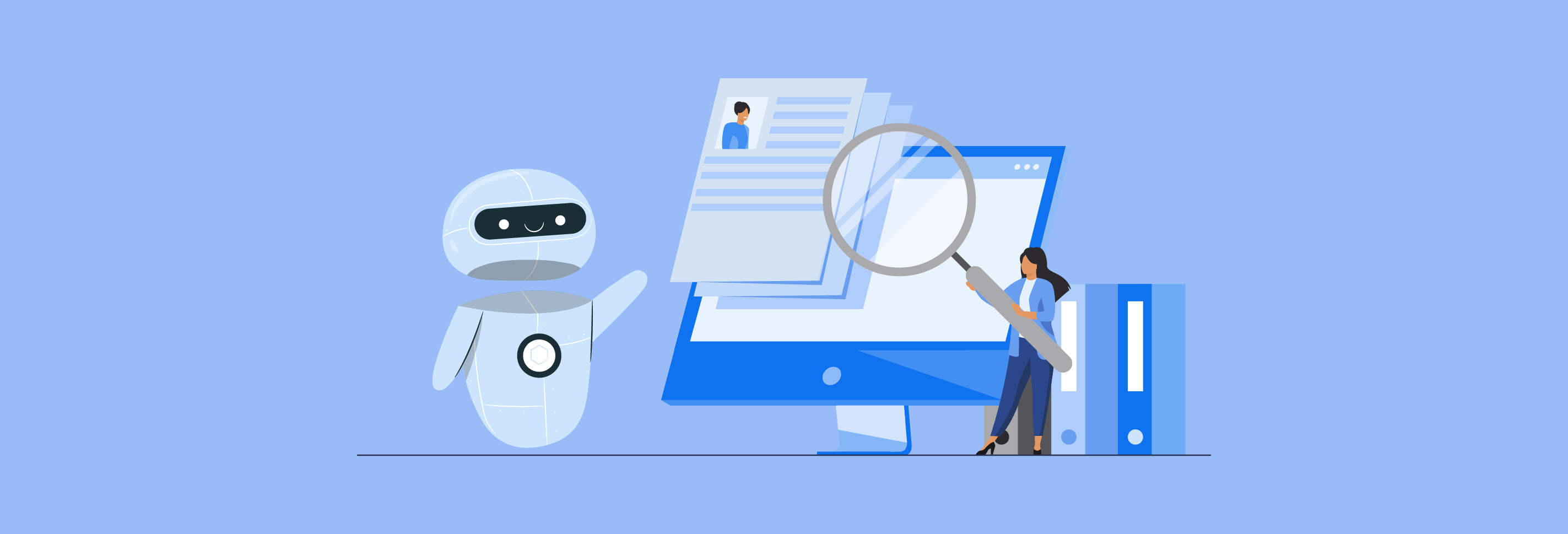
Artificial intelligence in employee onboarding
While the use cases of AI in HR may vary from organization to organization, the impact of the technology on employee onboarding includes some of the following aspects.
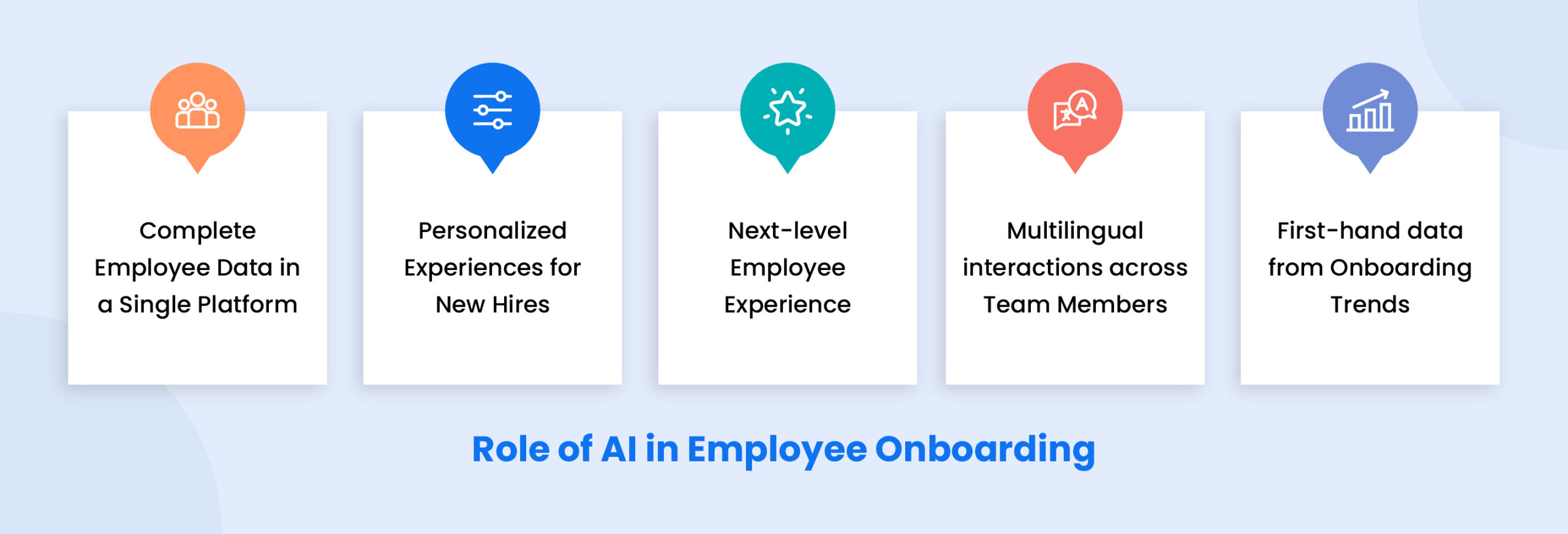
Get complete employee data in one place
By using automation, organizations are able to collect and compile data on candidates and employees in a more efficient manner. But it is AI that helps them analyze this data in a meaningful way during the entire onboarding process.
For example, during onboarding, you may require new hires to share their past salary slips. While automation can help you get the information from them, AI helps you segment these new hires based on the bracket their salary slips fall under. This automation then helps you plan out the next set of paperwork or legalities in a more streamlined manner.
Another example of the same is collecting and segmenting employee data based on demographics, marital status, or race, to be able to assign contextual benefits to them using automation during onboarding.
Personalization of new hire experience
Make your new employees feel like one among you even before they join the team. But to be able to do so, you need to keep them engaged at every stage of the onboarding process – right from the point they accept and sign the offer letter. This can be done using AI to personalize and automate your employee onboarding process.
Here’s what an AI-driven onboarding process can look like:
Welcome messages
Send automatic carefully-crafted messages at the different stages of employees’ onboarding journey. For instance, when they sign the offer letter, you can send them a team video welcoming them to the organization.
Assign an onboarding buddy
Based on the role that someone has joined in, you can match the parameters to your existing employees and identify the right onboarding buddy for them. This is ideally a person who has been in the same team and knows the nuances of the roles to be able to introduce the new hire to them.
First-day checklist
From introductions to orientation sessions and signing up for accounts, a number of things need to be looked into on the first day of joining. With AI, you can automate the checklist of items and make it easier for the new hire to follow (and for you to track progress on).
New hire engagement
At different stages of employee onboarding, you can also run engagement campaigns that focus on getting the new hire feedback on the process. With AI in HR, you can then process this information to create a more personalized experience for them.
Automate text and chat-based interactions
Conversational AI in HR is helping organizations to have more natural interactions with new employees before, during, and after onboarding, at scale. From conversations that seek feedback on their experience to those that are focused on understanding how comfortable they feel about their new job or what more they’d like to be equipped with, there are a number of ways organizations are using AI.
In addition to the same, the regular interactions with new hires are also helping them understand the sentiments early on. The data also helps them identify trends and patterns that impact their journey in the organization or the culture that they will be a part of.
Transform the employee experience
The role of HRs does not end at introducing a new hire to a new role. The next step is for them to continually enable their journey within the organization. With AI, organizations proactively look into:
Transitions
Provide support to your employees in times of transitions like getting a promotion, internal job transfer, etc. You can reach out to them proactively, resolve their queries and take pulse surveys automatically to feel their pulse with the help of AI.
Reboarding
Give employees automated updates about the latest company news and policies when they rejoin the team or return to the workplace after a long time. The idea is to make all your employees feel the most welcomed and comfortable in changing scenarios.
Offboarding
Leave a favorable impression on your employees even when they bid you farewell. Automate employee offboarding workflows, and take exit surveys to accurately gauge the reason for the change.
Multilingual interaction for an inclusive experience
The talent pool for organizations has grown dramatically owing to remote working. But with a wide talent pool, comes the need to accept different cultures and create diversity during the onboarding process.
For instance, if you’re building location-specific sales teams to be able to capture local markets for your organization due to a language barrier, you need to offer onboarding to them in a more inclusive manner. This may require setting up the onboarding process in different languages, which is now possible with the help of AI in onboarding.
Learning from onboarding trends
Every organization has a different approach to onboarding. With AI in onboarding software, it will become possible for organizations to create custom workflows relevant and contextual to them.
But in addition to the same, AI will also help them identify patterns and trends in their current onboarding process to derive actionable insights from. For example, the rate at which employees are added to your organization, or the number of successful hires from the talent pool accessible to you, over a defined period of time.
The data will also help organizations with better resource planning for both hiring and effective employee onboarding.

The future of AI in employee onboarding

AI-powered technologies are increasingly gaining acceptance worldwide. Most companies have started to feel the importance of AI across departments, especially in Human Resources (HR). This is mainly because it helps them maintain an intricate balance between being both digital and human, alongside a layer of data that helps them do their job much more effectively.
Based on the survey we conducted for the 2022 – State of Employee Onboarding Report, we found that organizations are leveraging AI and automation in the following areas:
- 53% – induction and orientation processes
- 53% – reporting automation in HR
- 44% – role-specific training
- 52% – general training
- 38% – induction process
- 40% – initial documentation
The survey respondents also state that using AI in HR and automating employee onboarding will “increase the productivity of the employee as well as the onboarding function.”
83% have indicated that they are very likely to adopt an automated onboarding process in the next 12 – 24 months. And 41% of these respondents have anticipated that they will adopt an automated onboarding process within 6 – 12 months.

AI in onboarding – Yes or No?
While organizations continue to hire and onboard new talent, they also need to ensure that they understand the needs of the ‘future of work’ and tailor their processes accordingly. That’s why the answer is a big YES to using AI in employee onboarding.
And we’re not the only ones to believe so. The ‘2022 – State of Employee Onboarding report’ mentions:
- 92% of HR folks are very much familiar with Artificial Intelligence (AI)/Automation in the hiring and onboarding process of their organization
- 90% of HR people say that automated processes are ‘Very important for future HR function‘
- 87% of HRs are ‘Very committed’ towards adopting AI for hiring and onboarding
But in the end, how easy it becomes for an organization to adopt AI into their employee onboarding process also depends on the software they choose. A good employee onboarding software is not just packed with features that will help the HR enable smart automation across the onboarding processes but also one that is easy to interact with – even from the new hire’s perspective.
The idea is to make employee onboarding more efficient and effective for both the HR and the new hire, without compromising on the engagement and experience one needs to ‘humanely’ feel when joining a new organization.




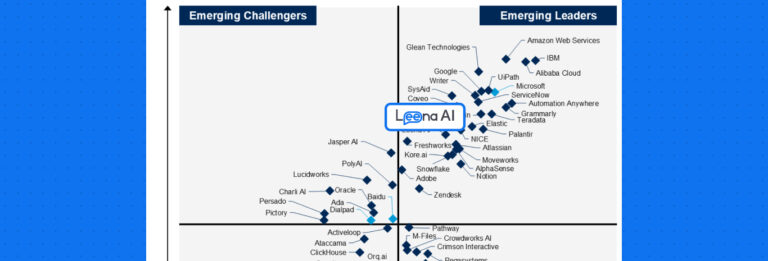
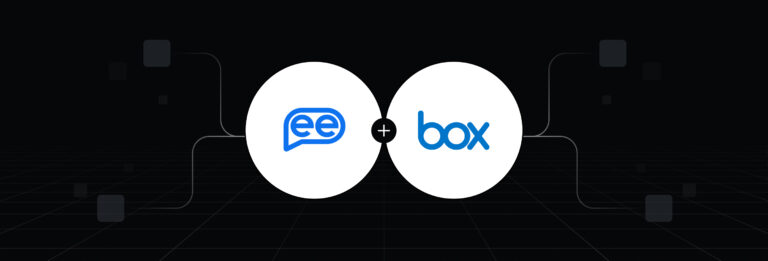
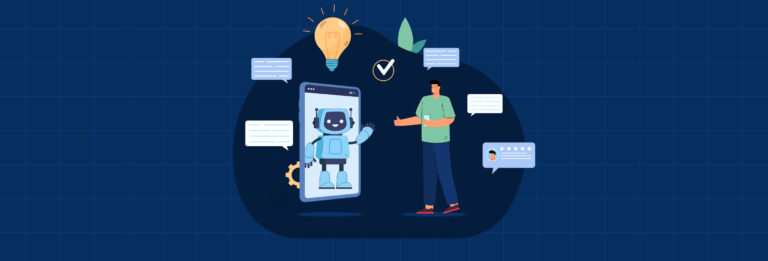
6 Comments